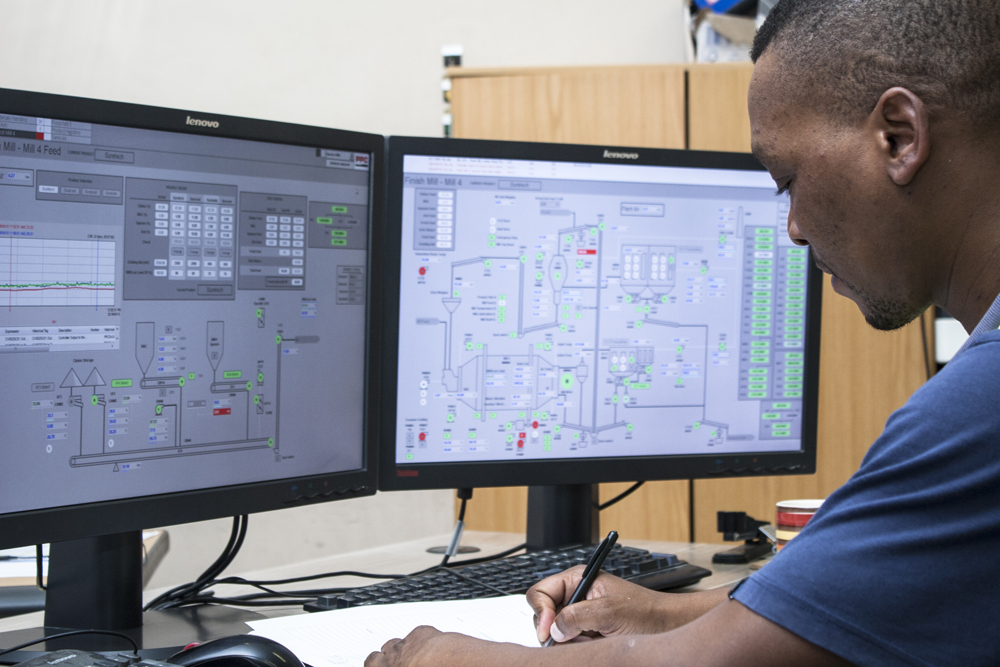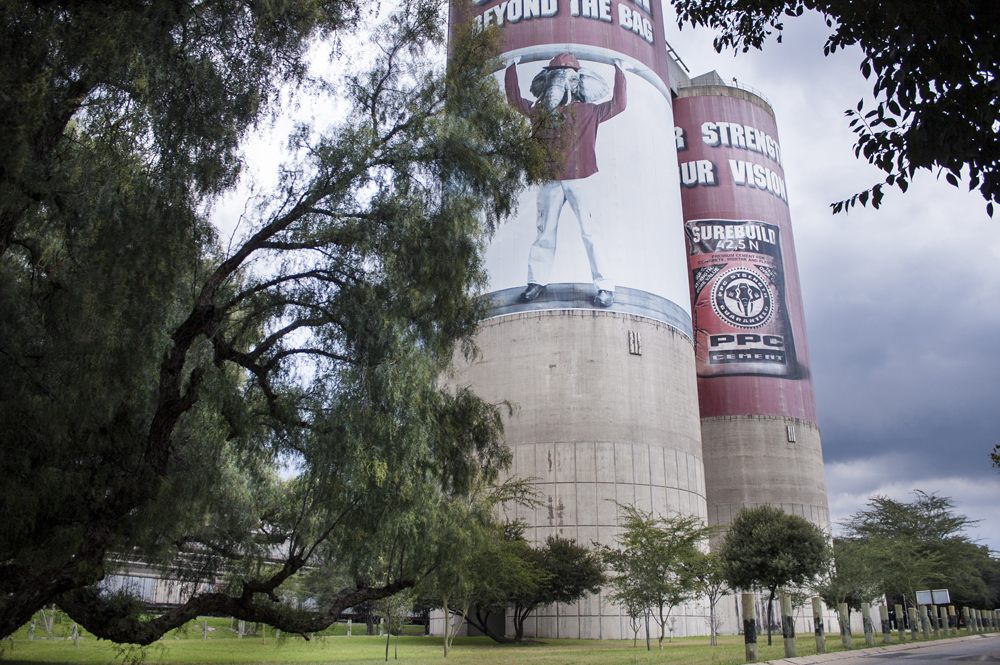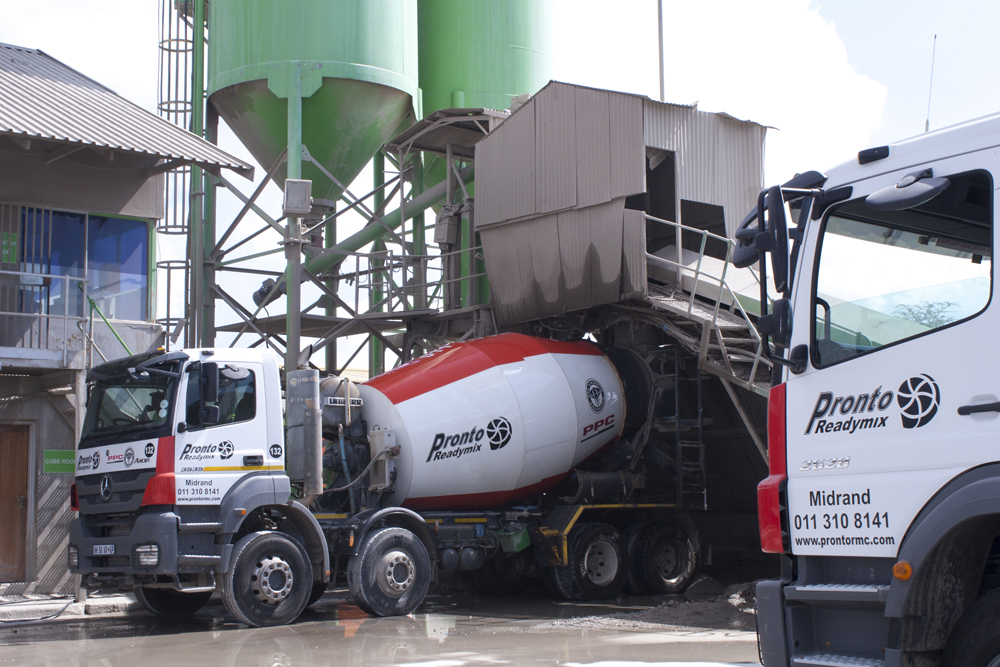
That the cement industry in South Africa is in dire straits due to the COVID-19 pandemic is no overstatement. While almost all sectors of the economy have been hit hard, Bheki Mthembu acknowledges that the cement industry is one of the worst-hit industries during the current pandemic.
According to Mthembu, the industry was already in survival mode pre-COVID-19 and the outbreak of the pandemic pretty much served as the “final nail in the coffin”. The business environment pre-COVID-19 was already tough, with the industry operating at almost half of its capacity, with the importation of cheap cement from Asia undercutting local manufacturers by at least 45% exacerbating the situation.

“Prior to COVID-19, the cement industry in South Africa was already at ‘rock bottom’, with most of the cement producers having to halve their capacities. We also had to fight against the importation of cheap, substandard cement into the country, while calling to order the so-called cement blenders who were taking shortcuts as far as their quality and subsequent prices were concerned,” explains Mthembu.
To provide some context, figures from The Concrete Institute show that South Africa has become a net importer of cement with total imports increasing by 139% since 2016. A total of 350,441 tonnes (t) of cement arrived in South Africa during the second quarter of 2019 – the most since the third quarter of 2015. Most of the cement landed at Durban at the time – the 260,909t that arrived there was an 85% increase on the first quarter of 2019.
Combined with unprecedented low levels of demand due to slowed economic growth, the industry was already facing a survival crisis pre-COVID-19. The COVID-19-influenced hard lockdown, dubbed Alert level 5 of South Africa’s tiered approach to fighting the pandemic, saw the complete shutdown of the cement sector and the construction industry at large, leaving cement producers with absolutely no revenue during the month of April. While Alert Level 4 regulations allowed the cement manufacturers to operate at 50% capacity levels, the construction industry was still completely shut, leaving cement manufacturers in a precarious position. The start of Alert Level 3 in June offered some reprieve for the industry, with Mthembu noting some recovery, notably driven by the retail sector.
“We have seen a notable recovery of the market due to some small-scale building and renovation activities currently going on. Thus, the retail sector has been a bit positive for us in June and July. However, there is very little happening on the large construction projects front,” says Mthembu.
One inherent advantage that PPC has over some of its competitors is its wider geographical footprint. To give an idea, under Alert Level 4 of the lockdown, government allowed cement operations to operate at 50% of their capacity. Thus, a cement producer with only two sites, for example, operating at 50% of its capacity, is nowhere near PPC’s 50% capacity across eight factories around South Africa, says Mthembu.
PPC’s extensive geographical footprint, he says, also means that the company can still operate sustainably in the event that one of the operations records a positive COVID-19 case, which according to government regulations, necessitates immediate closure for deep cleaning and disinfecting purposes. “We can, therefore, navigate the challenges posed by COVID-19,” he says.

While COVID-19 has had a devastating impact on the economy, Mthembu believes it has also served as a wake-up call for the government, highlighting the need to prioritise infrastructure development as the path to economic recovery, as well as to fight social ills such as the lack of water sanitation and housing.
In an environment where people are obliged to social distance and continuously wash hands to curb the spread of the virus, Mthembu notes that the call is impossible in areas like townships where, for example, a family of seven has to share a two-bedroom house, and the provision of potable water is erratic. To this end, the government has gone on record to say there is a need to drive housing and water infrastructure aggressively.
Apart from the need to prioritise social infrastructure, Mthembu believes that the government also understands that the quickest route to resuscitating the economy post-COVID-19 is via infrastructure development. “In June the government hosted the Sustainable Infrastructure Development Symposium, where President Cyril Ramaphosa made promising commitments to prioritise infrastructure development to support structural transformation, creation of jobs and economic recovery,” he says.
The symposium notably reflected on a number of projects that have been identified by the National Infrastructure Fund. The fund has finalised a list of projects worth ZAR700billion (£30.8bn) over the next 10 years.
Mthembu is of the view that as South Africa works towards overcoming the social and economic fallout of COVID-19, the development of key infrastructure will play a critical role in building the economy and creating jobs. Infrastructure development can be the catalyst that places the country on a new growth trajectory, he says.
“As the cement industry, we remain optimistic that if these strategic objectives of the government materialise, the construction sector will rebound, creating many jobs and contributing to a quick turn of the economy,” he adds.
Looking ahead, Mthembu is of the view that the more pressing concern for cement manufacturers post-COVID-19 will be the increased pressure to rapidly ramp up production in an effort to recoup output lost during the lockdown. Like many, Mthembu believes that technology and innovation will play a central role in the future of the cement industry. In such a highly competitive environment, conventional business approaches will lose their place, he reiterates.
Mthembu is a proponent of innovation and modernisation, key values shared by his company, PPC. PPC understands that modernisation of its plants is critical to building and sustaining the momentum needed for long-term development.
“Technology in future will play a central role in the cement industry. Robotics and instrumentation, for example, will take over the role of labour in manual operations where you have people loading and unloading cement bags, for example. In Africa you still find that this task is largely done manually, which, in the current operating conditions, makes it difficult for people to social distance due to the labour-intensive nature of these functions,” he reasons.
Mthembu believes that the current situation creates major challenges for cement companies, not only in South Africa, but across the continent, and shows that digitalised and highly automated production is more important than ever when it comes to gaining a competitive edge.
“This is the only way that companies can react to current and future challenges with the required degree of flexibility,” he says, adding that just as important as the tools are the staff operating these new technologies. Automatic and digital processes, he says, will be made possible by a pool of well-trained and skilled people who understand the complexities of the technology.

Thus, the key benefit of the approach to modernisation, he says, is skills transfer, equipping current and future generations with critical skills related to advanced cement manufacturing technology, as well as technical sales and distribution.
From a productivity perspective, Mthembu says new technology helps cement manufacturers with the much-needed efficiency and higher throughputs than older technology. “Technology plays a significant role in driving efficiency, allowing cement producers to run at a lower cost per tonne, which helps with the paying back of the capital investment quite faster.”
Additionally, Mthembu believes that post COVID-19 cement producers must be more concerned about two main objectives – a smaller carbon footprint and lower energy consumption, especially considering that a carbon tax introduced in 2019 on the South African cement industry’s activities will definitely increase the industry’s production costs.
Many of the cement industry’s industrial production techniques need a revamp. Cement production is one of the most polluting and energy-intensive processes, and the demand for a better way is only equalled by the demand for the product itself. “New technology will be the best of both worlds for the industry; it will help the industry meet its sustainability goals, while reducing operating costs significantly through energy-efficient plans,” concludes Mthembu.








